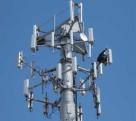Definition of Broadband - Is There One?!
What's the definition of broadband? There's so much hype around broadband (a.k.a. high speed broadband, mobile broadband, wireless broadband) that many of us stop to ask the very good question: "What exactly is broadband?"! Most of us have heard of it, companies have been marketing it like crazy for over a decade, and we even use these terms in our daily lives. But really, how many people really understand the definition of broadband?Interestingly, as common and popular as it is, and with all of the discussion around 4G mobile broadband services, and no contract broadband, there actually isn't a standard, universally agreed to definition of broadband. It's actually quite amazing when you think about it. In general, broadband can be defined as one single medium
 carrying many channels (and a large
range of frequencies) at once over
long distances. For example, in the world of television, a
broadband service provides dozens of channels over one single cable
delivered to your home. In terms of the Internet, it can
carry
data, video, and audio all at once. So before broadband, you
wouldn't be able to use Skype to have conference calls, or watch
streaming video over your Internet connection. Broadband
technology enabled the delivery of these types of services.
That's the real world application!
carrying many channels (and a large
range of frequencies) at once over
long distances. For example, in the world of television, a
broadband service provides dozens of channels over one single cable
delivered to your home. In terms of the Internet, it can
carry
data, video, and audio all at once. So before broadband, you
wouldn't be able to use Skype to have conference calls, or watch
streaming video over your Internet connection. Broadband
technology enabled the delivery of these types of services.
That's the real world application!Many people like to define broadband in terms of the physical speed that it can deliver. This approach is certainly very logical. The problem is that no one can seem to agree on what that speed is or should be! Here's a few examples of common speed-based definitions of broadband:
- Connecting to the Internet at speeds greater than dial-up modems (i.e. 56 kbit/s) is considered to be broadband.
- Any Cable or DSL (Digital Subscriber Line) is considered broadband.
- Pre-2010 FCC definition: Bandwidth that provides speeds greater than 2 Mbps is defined as being broadband.
- 2010 FCC definition: Bandwidth that provides speeds of 4 Mbit/s down, and 1 Mbit/s up.
- 2015 FCC definition: Bandwidth that provides speeds of 25 Mbit/s down, and 3 Mbit/s up.
 What
everyone CAN agree on is that there is no agreement on the definition
of broadband, and that it changes over time! As a result,
many people loosely define it
as
any high speed Internet access. With all of the Prepaid
Wireless Broadband technologies currently available,
while such a definition is nice and generic, it certainly does not
provide any insight for those of us who want to compare and evaluate
the existing broadband technologies.
What
everyone CAN agree on is that there is no agreement on the definition
of broadband, and that it changes over time! As a result,
many people loosely define it
as
any high speed Internet access. With all of the Prepaid
Wireless Broadband technologies currently available,
while such a definition is nice and generic, it certainly does not
provide any insight for those of us who want to compare and evaluate
the existing broadband technologies.Broadband elements that people do tend to agree on:
- The actual speed delivered and how people define it is subjective.
- It's an always on, fast connection using large capacity networks.
- The greater the bandwidth, the greater the data/information that can be carried across it.
- No standard/global definition exists!
Conclusion!
I believe that it doesn't really matter what people debate in terms of a formal technical definition of broadband or what particular speed is required. For me it comes down to what you can do with a particular broadband connection. For example, how long does it take to view an image that's downloaded online? Can you listen to streaming music or movies and have it come through smoothly? Can you have a phone conversation with good quality audio using VoIP (Voice over IP; i.e. voice over data) services like Skype, Hangouts, or Face Time? Or better yet, can you have a live video conference without skipping images and shoddy speech? These are the types of real life activities that really tell you the capabilities of your broadband connection. So whether it's officially 2.5G, 3G, 4G, or 5G it doesn't really matter!
Carriers are constantly marketing that their service is faster than their competitors, or that stating that prepaid sub-brands have throttled speeds. Don't let yourself get caught up in the propaganda! What matters is performance. If a particular prepaid service is capped at 10 Mbps, compared to its postpaid big brother performing at 20 Mbps, what's the real world difference? Can I still stream 4K video with no buffering on 10 Mbps network? Of course!
Wait, there's more!
Let's go beyond just the definition of broadband. Once people started getting access to broadband, mobile broadband in particular, it became clear that we could now download hundreds of megabytes, and even 100s of gigabytes of data without long, irritating wait times. Companies then started selling customers buckets of data. Initially data plans were actually unlimited because people were fearful of going over their data bucket and ending up with a huge overage bill at the end of the month. However, now consumers are more savvy, and getting used to how much data things consume. However, it's still not always clear, and with prepaid broadband plans, knowing how much data you need is important, because it can drastically change the price and value of a given provider's plan, and definitely change your purchase decision.
Many broadband carriers will provide a list of estimated activities that a user can accomplish with a certain amount of megabytes. They use real world, human language to help people better understand. Here's a commonly accepted example of what you'll see companies claim that I think is very useful:
| What you get in the real world! | |
| Weekly Activity | Monthly Data |
| Send/Receive 200 text emails | 16 MB |
| Visit 150 Website page views | 354 MB |
| Send or Post 60 Photos | 245 MB |
| Download 5 songs, apps, or games | 80 MB |
| Watch 2 hours of videos | 960 MB |
| Stream 2 hours of music | 480 MB |
| Play 2 hours of online games | 140 MB |
| 1 hour of turn-by-turn directions | 20 MB |
Learn more about
Prepaid
Wireless Internet & Prepaid
Broadband Plans!
Home
›
Definition Of Broadband
| Be Heard! Let prepaid wireless providers know what you want; fill out the survey now. |



Comments
Have your say about what you just read! Leave a comment in the box below.